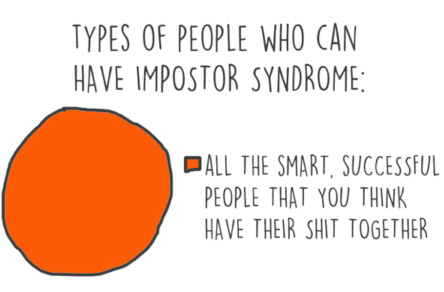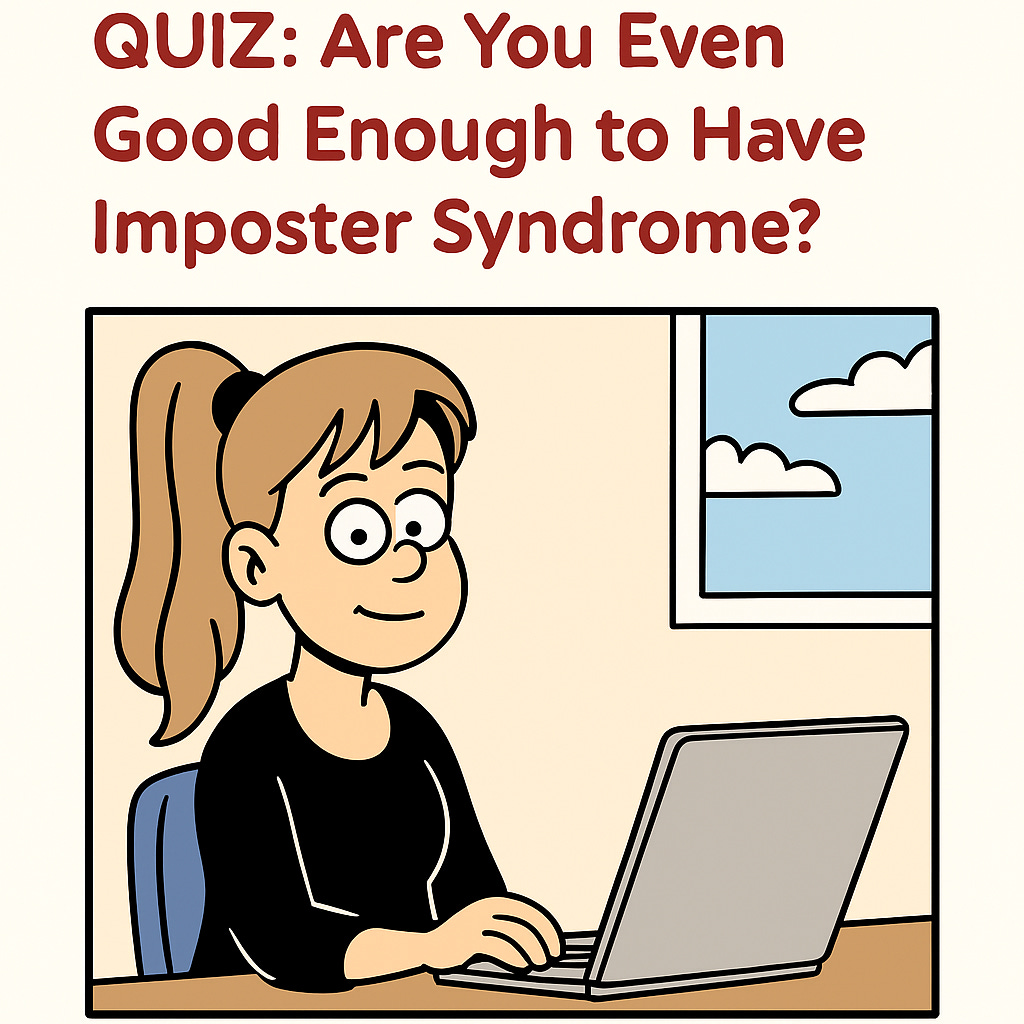🫣 Am I Even Qualified to Open This Email?
Impostor Syndrome? I Call It Tuesday. Turns Out That Creeping Self-Doubt Is Actually A Secret Superpower.
Who Let Me In Here?
Last week, I went back to my old university to interview new applicants - one of those “full-circle” moments that’s supposed to feel like a win. And it did, in some ways. But it also brought up a lot more:
Walking through those halls, I was instantly back in the headspace of 2017 me - the version of myself who spent her entire first semester wondering if the admissions team had made some sort of clerical error. I felt awkward, unsure, hyper-aware of everything I didn’t know, and quietly terrified that someone might notice.
Fast forward to now, and I still catch myself in that same mental loop more often than I’d like to admit. These days I sit in rooms and join projects I wouldn’t have dared to imagine a few years ago - and yet the voice still shows up:
“Why would anyone care what I think?”
“What am I even doing here?”
What If Self-Doubt Was a Strength?
I know, the impostor syndrome thing has been a little ✨ausgelutscht✨ on LinkedIn.
But when I read Jacinda Ardern’s A Different Kind of Power, one quote genuinely stuck with me:
“If you have impostor syndrome, or question yourself, channel that. It will help you. You will read more, seek out advice, and humble yourself to situations that require humility to be […].
The things you thought would cripple you will in fact make you stronger. They will give you a different kind of power.”
Jacinda knows what she’s talking about:
She became New Zealand’s youngest Prime Minister in over 150 years and led the country through a terrorist attack, a volcanic eruption, and a global pandemic - all while being a working mom under intense public scrutiny.
Her leadership style wasn’t defined by bravado but by empathy, collaboration, and an openness that made space for nuance. And the way she talks about self-doubt doesn’t feel weak or performative, it just feels honest to me. Especially when you're in rooms where everyone else seems louder, older, more confident, and like they’ve already figured it all out.
Data or Didn’t Happen
Turns out, research backs her up on this. A study by MIT Sloan from this year debunked some of the biggest myths around impostor syndrome - here’s what stood out to me:
It’s not permanent.
You’re not doomed to feel this way forever. These feelings show up in new or high-pressure contexts, and usually fade as you settle in (still waiting for this one to happen 😂).It affects everyone - not just women or underrepresented groups.
Despite stereotypes, men experience impostor syndrome just as often. So if you think you’re the only one questioning yourself, statistically speaking: you’re not. (You can always count me in at least lol).It’s not always harmful. Sometimes it helps.
Those same feelings of “not enough” can actually fuel empathy, curiosity, and stronger interpersonal skills. What feels like self-doubt might actually be self-awareness (!!!!).It doesn’t mean you’ll fail.
There’s no strong link between impostor thoughts and poor performance. Feeling like a fraud doesn’t make you one (good news!).
Plot Twist: You're Not a Fraud
So here’s the thing: feeling like you don’t belong in a room doesn’t mean you actually don’t. Often, it just means you’re growing - stretching into something new and unfamiliar. It means you care, and that you’re aware of what’s at stake.
So if you ever catch yourself thinking, “Wait… who let me in here?”
The answer might just be: you did. :-)
— Constanze
P.S. If you’ve read A Different Kind of Power, I’d love to hear your take. And if not, it’s a strong recommendation from me.



Same university and exactly the same feeling! :)